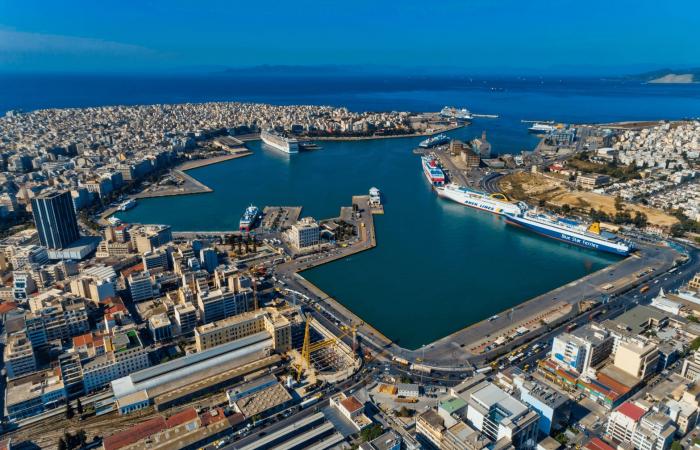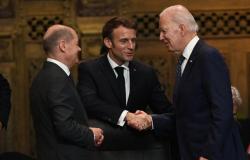Greece, with the Port of Piraeus and Thessaloniki, is a key country for maritime transport from Southern Europe, being the closest water entry point to Europe from the Middle East and Asia and the key to the Dutch veto on Bulgaria’s Schengen entry , reports the Bulgarian publication Trud, quoted by Rador.
Port of Piraeus, Greece PHOTO Shutterstock
The Netherlands is important because of the port of Rotterdam, which is in the top ten of the largest ports in the world and is the largest port in all of Europe. Rotterdam is a gateway to and from Europe. Most goods enter through Rotterdam, including from the Far East and the USA, through Rotterdam most goods of European manufacturers export machinery, machinery and equipment, most often through the Dutch port, from where the goods of German, French and Austrian industry (if you understand me) they find an outlet in international markets. Therefore, Austria is particularly favored by Rotterdam, because of the direct connection by water along the Danube, the cited source also mentions.
First of all, Greece, Bulgaria’s neighbor to the south is traditionally a maritime country with a huge fleet and maritime experience. Second, Piraeus and Thessaloniki are located in a key location that is easily and quickly accessed via Suez from all over the Middle East and Asia. Third, both ports are large, have facilities, experience, required depth, etc. Fourth, Greece’s climate allows year-round uninterrupted operation of any type of cargo.
Fifth, and most importantly, if Bulgaria is in Schengen, then goods from the entire Eastern Hemisphere will be able to enter Greece and then enjoy free movement to Western Europe.
For example, a container of goods from China arrives at the port of Piraeus operated by a Chinese company. It is processed there and put on a truck for Germany. Or Austria. This container stops at Kulata customs once for several hours of queuing and checking. It then passes through Bulgaria and stops at Vidin for a few hours (or a few days) of queuing and checks to enter Romania. Then it stops again for a few hours between Romania and Hungary. Only after Szeged does this container travel smoothly and quickly to its final destination.
Any queue is expensive for the carrier. Here we consider wages and expenses for a driver who does not add value by traveling, but costs to stay in one place. This is a delay in order delivery. This is a time when the truck is not making money and the lease is going. Extrapolate this to millions of containers (Rotterdam handles over 15 million per year) and we will see that without Bulgaria and Romania in Schengen, Greek ports simply cannot compete with Rotterdam.
Chinese and Indian ships will prefer to cross the entire Mediterranean and bypass half of Europe, but know that once they reach Rotterdam, it is easy and fast to deliver their goods from there. Nobody has the nerve, time or money to deal with the impossible queues at Kulata and Vidin.
But if Bulgaria and Romania are in Schengen, then the picture becomes different. The goods come from China through the Suez Canal, stop in Piraeus or Thessaloniki and are already in Europe. With a truck or train you can transport the goods to Western Europe, and that will already have a similar cost to the entire trip to reach Rotterdam.
Bulgaria could also expand the existing river infrastructure in Vidin and Lom and transport goods on the Danube, where the cost of transport service would be much lower than by road or rail.
Thus, the Netherlands sees its interest. It has no reason to have a competition in the person of Greece by opening the access of Greek ports to Western Europe through Bulgaria and Romania.
Tags: Bulgaria explained Netherlands vote Schengen Greek ports
-





